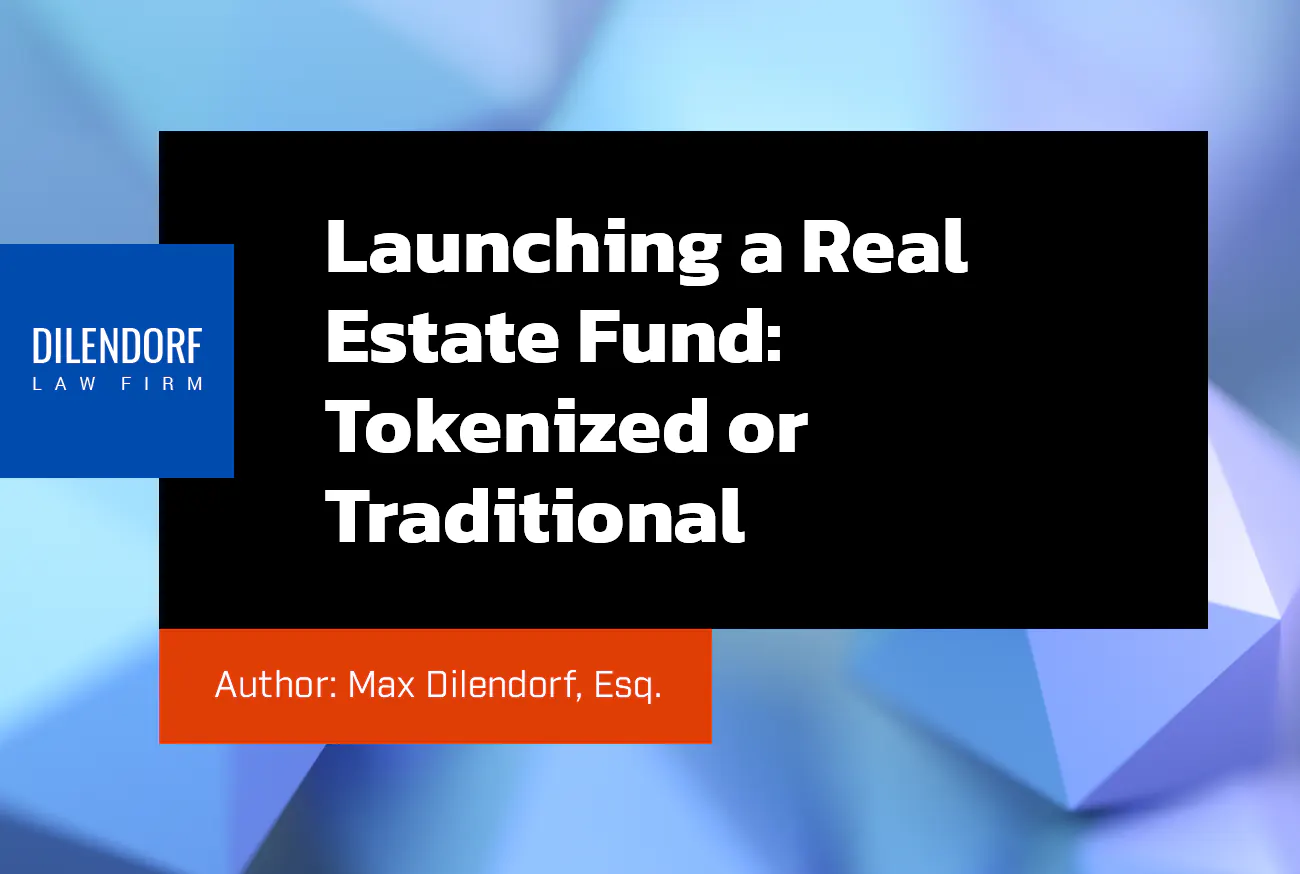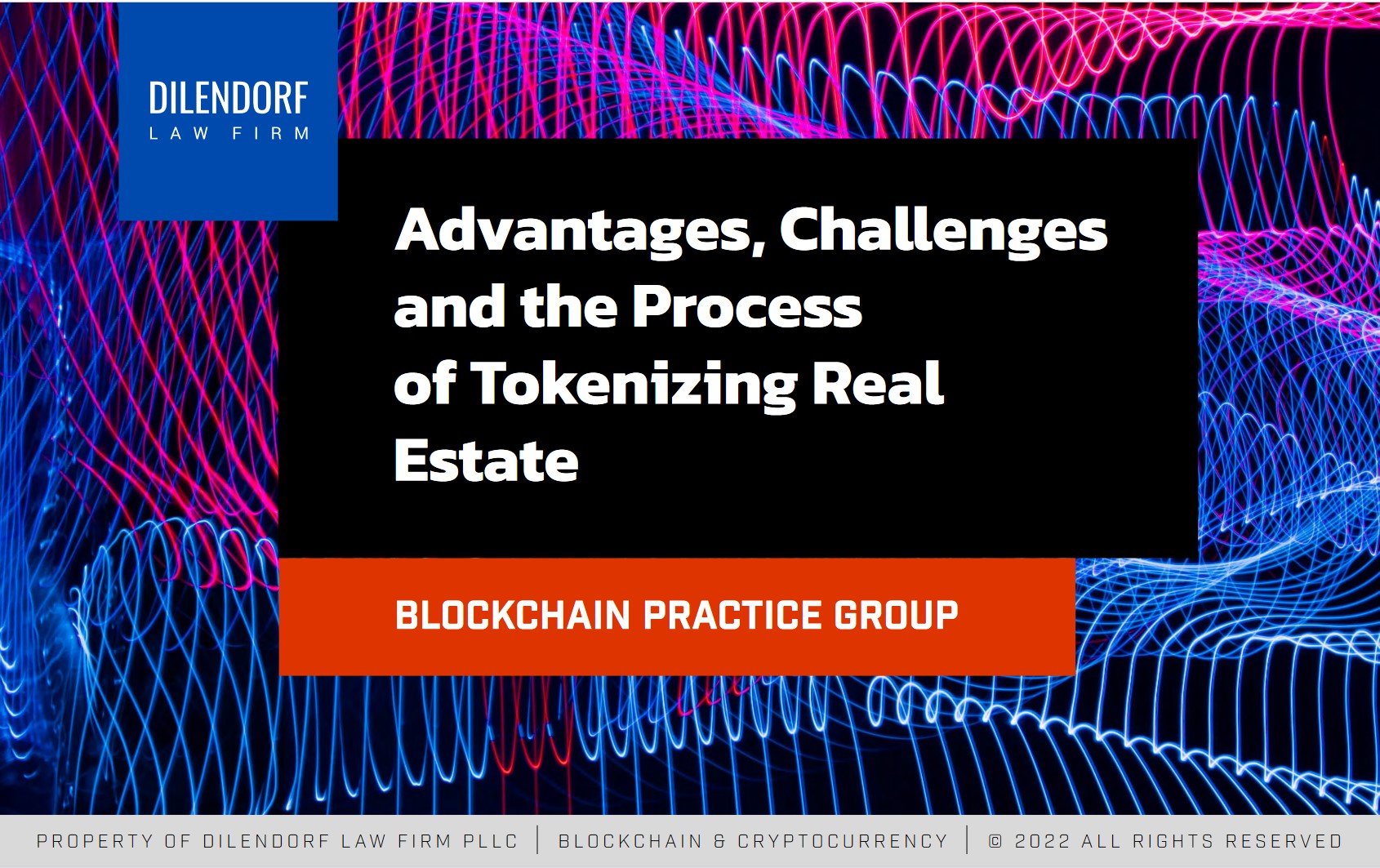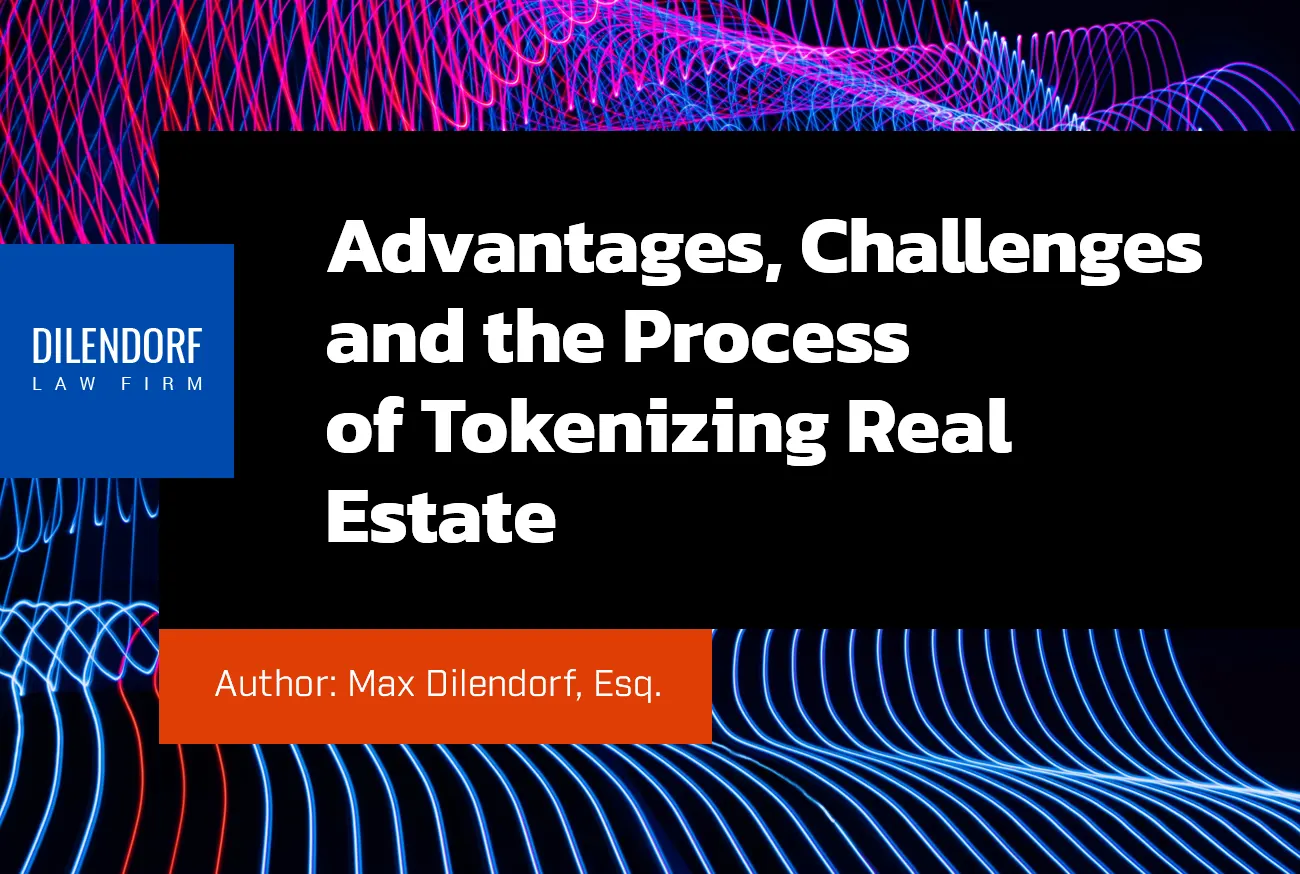
Tokenization is the process of developing a virtual token on a blockchain to represent a fractional ownership of a real-world asset.
In the context of real estate, that asset could be the property itself, ownership interest in a legal entity that owns the property, debt secured by the property or a right to income from such property.
Tokenized real estate has the potential to revolutionize the way in which investors and sponsors finance, purchase, hold, earn income from and sell real estate assets.
Tokenization offers unique advantages over existing investment options. Such advantages include:
- Liquidity;
- Access to global investment pool;
- Reduced barriers to entry for investors;
- Security; and
- Transparency
Our firm can guide real estate sponsors, owners and operators through the process of tokenization – from devising an appropriate legal and corporate structure to implementing the real estate token sale in compliance with all applicable regulations.
Comprehensive Guidance in the Face of Complexity
From a legal, practical and technical perspective, real estate tokenization is a highly sophisticated and cutting-edge process.
We offer comprehensive guidance and help our clients understand and effectively plan for the complex web of factors, which can impact real estate tokenization transaction:
- Type of real estate to be tokenized (income-producing, development site, trophy properties, etc.);
- Type of interest, appropriate structure (fund, SPV, hybrid) and jurisdiction;
- Tokenization ratio;
- Encumbrances or clouds on the title of the property;
- Smart contracts used to define the token rights and to implement the token sale;
- Federal and state securities laws and regulations;
- Federal and state tax and reporting requirements;
- Keeping track of the holders of record, reporting obligations and re-sales; and
- AML/KYC and investor accreditation requirements during the token sale and secondary trading, if any.
STOs Can Be Conducted Under Exemptions from SEC Registration: Reg D, Reg S, Reg A+, Reg CF
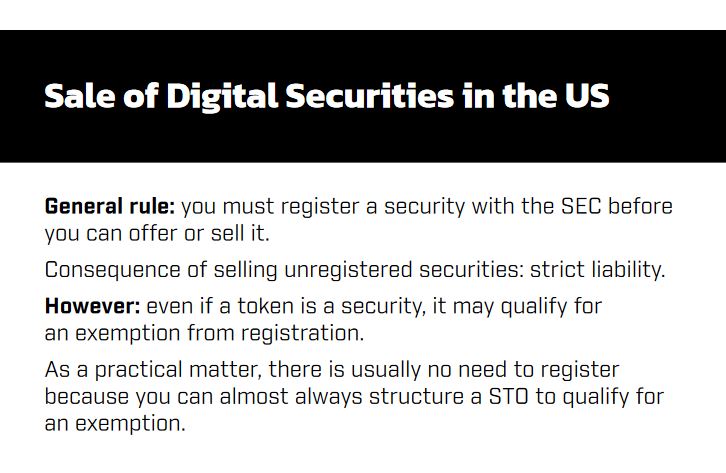
Before any security, including a security token, may be offered or sold in the US, it must be registered with the Securities and Exchange Commission (SEC) or qualify for an exemption.
Registering security is a costly and time-consuming process. But if an exemption applies to an offering, then it does not need to be registered.
Most commonly, real estate tokenization deals are structured under one of the following exemptions from registration offered by the US Securities Act: Regulation D, Regulation S, Regulation A+ or Regulation CF.
Although exemptions under the SEC regulations eliminate the need to register STO with the SEC, qualifying for an exemption still requires careful compliance with US securities laws.
Secondary Trading of STOs
To launch a successful real estate STO, issuers will need to meet compliance standards, create a stable governance structure, and have shares that are able to be traded on the secondary markets called Alternative Trading System platforms (“ATS”) in the US, Europe and Asia.
Finally, the minted real estate STO tokens must be compatible with the chosen regulated ATS platforms to be listed and tradable.
This challenge should be addressed beforehand as different tokenization platforms and ATS platforms have different standards and blockchain protocols.
The STO issuers should establish contacts with the ATS of their choice before the primary issuance to ensure that the issuer’s and platform’s configurations of digital securities match and the pre-listing procedures required by the ATS are adhered to.
Some of the ATS platforms offer all-in-one tokenization, marketing and listing services, which may simplify your task but still require an in-depth due diligence on the possible issues outlined above.
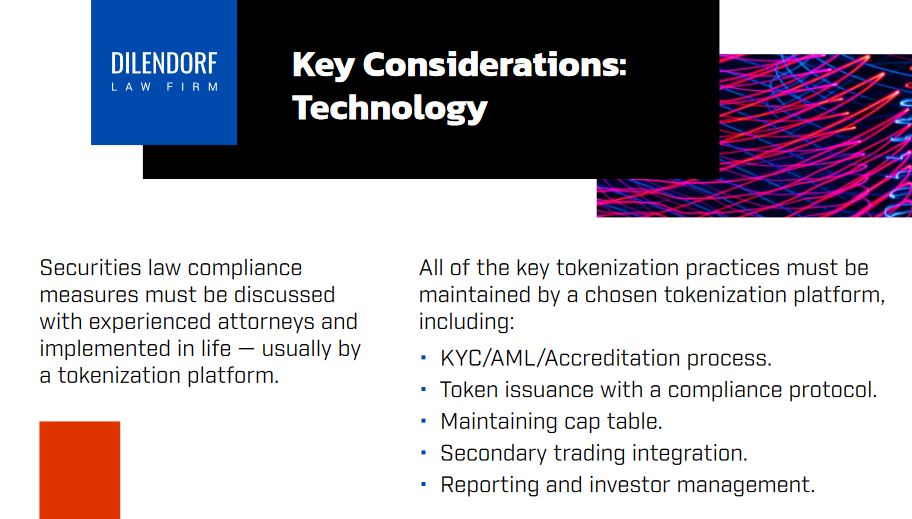
If the offering is poorly structured or documented, the digital security’s features are unenforceable for secondary trading, or if the security tokens are incompatible with the selected ATS, blockchain projects may be tempted by a seemingly simple technical solution – recalling the flawed security tokens and replacing them with the new ones.
However, this may not be possible or may be costly and complicated from the legal standpoint, as one cannot always simply recall the issued securities, albeit in the form of digital tokens.
Defects in STOs itself may be incurable for legal compliance purposes and may disqualify the security from being listed on a regulated trading platform.
So, getting your STO tokens to secondary market is something to consider well in advance, or risk the loss of the digital security’s value, or even liability for violation of securities and other laws.
Dilendorf Law Firm understands a multitude of issues and how they can impact the tokenization process.
We apply our deep knowledge of real estate, tax and securities laws with our experience of launching blockchain assets to help our clients successfully navigate the legal, practical and technical complexities that come with the tokenization of real estate.
Tax consequences
Token issuers must consult professional tax advisers to develop a sound tax-planning strategy in the weeks and months before an STO. Any such strategy must account for (among other issues):
- The type of tokenized interest and the rights associated with the token;
- How income generated in the token sale will be treated for tax purposes;
- What reporting and withholding requirements may apply.
The IRS issued IRS Notice 2014-21, IRB 2014-16, as guidance for individuals and businesses on the tax treatment of transactions using virtual currencies.
The IRS also published Frequently Asked Questions on Virtual Currency Transactions for individuals who hold cryptocurrency as a capital asset and are not engaged in the trade or business of selling cryptocurrency.
Resources:
